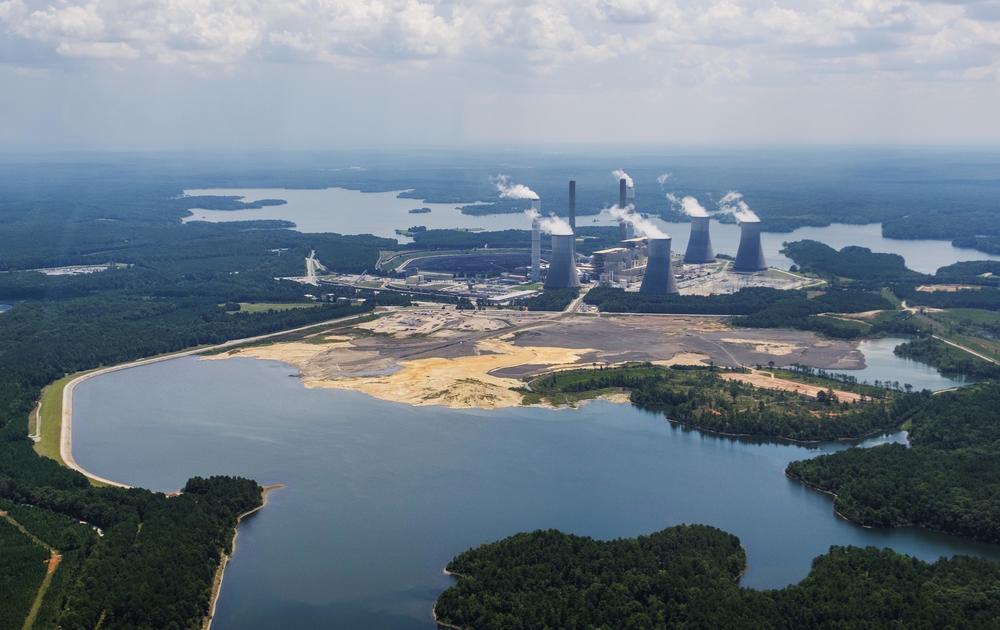
Caption
The coal ash pond, foreground, where waste from Georgia Power's coal fired Plant Scherer is stored. The EPA said it will not allow coal ash to be stored in contact with groundwater as it is now at Plant Scherer.
Credit: Grant Blankenship/GPB


